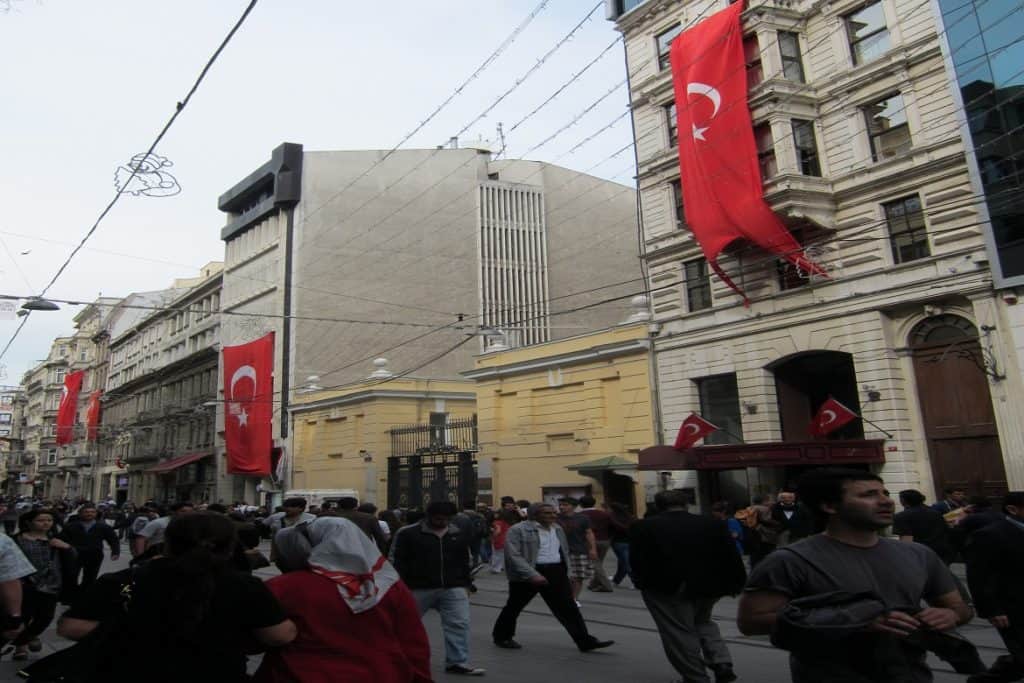By Denis Korkodinov
Turkey is in a state of internal political crisis as since the result of the municipal elections of March 31, 2019. The conflict caused by the ruling party’s refusal to recognize the results of the voting has not yet been resolved. Rejep Erdogan’s “Justice and Development Party” and “Nationalist Movement Party” of Devlet Bahçeli, members of the so-called “People’s Alliance”, expect to win the majority of votes in Istanbul, Antalya and in a number of other strategically important cities of Turkey by a repeated vote.
The last word in this conflict was put by the Supreme Electoral Council, which on May 6, 2019 decided to re-vote. Arising in this way new political tension in the the country, since the Turkish opposition unequivocally will not recognize the results of the repeated voting. Rezhep Erdogan’s opponents can take countermeasures and bring people to the streets. Therefore, the ruling party is now in a very delicate situation.
There is no doubt that the electoral “leapfrog” in Turkey cannot be completed in the short term. This is a long-term process that has so many pitfalls. But at the same time the process could allow Recep Erdogan to demonstrate to a target audience all of his political skills to get out of the crisis that has been arisen.
Ankara is facing serious difficulties. The political uncertainty limits the ability of the current government to focus on the many accumulated economic problems. The Turkish economy underwent a significant decline in the summer of 2018 as a result of currency fluctuations. Structural reforms would improve the economic picture, but this requires international investments, since Ankara does not have its own resources. However, foreign partners are not ready to invest heavily in the Turkish economy due to the lack of guarantees of political stability.
The field of international relations is also a problem. First of all, it concerns the need to normalize the Turkish-American constructive dialogue. The acquisition of Ankara S-400 systems, as well as F-35 aircraft, is still a stumbling block between the United States and Turkey. In addition, Washington’s support for Kurdish armed forces in northwest Syria is also a reason for a certain irritation of the Turks.
So, before dealing in the solution of the external problems, Ankara needs to focus its attention on internal problems, trying to neutralize the threat of national tension, which could develop into spontaneous demonstrations against the current government.
The first steps towards the solving of internal problems, in my opinion, have already been taken. At least, almost immediately after the municipal elections, Recep Erdogan, addressing the members of the Memur-Sen trade union, officially declared the need for a dialogue between the opposition and the ruling party. Such a statement demonstrates the willingness to unite in order to find compromises on key issues of Turkish life.
This is a fateful turn of the policy of Recep Erdogan, who publicly demonstrated that he does not pursue the goal of a single-handed government of the country, but he is willing to engage in dialogue with all progressive forces that want Turkey to prosper. Also, such a strategy could significantly enhance the image of the Turkish leader both domestically and internationally.
Meanwhile, despite the clear victory of the opposition in Istanbul and other cities, the prospects of the opponents of the current course are not very bright. There are still irreconcilable differences between the various members of the opposition bloc (the Republican People’s Party, the Nationalist Party of Turkey, the Kurdish Nationalist People’s Democratic Party). It is obvious that the bloc could soon fall apart and the various members could start a war among themselves. So Recep Erdogan can strengthen his image against the background of the crisis within the opposition.
In the interests of its policy, the Turkish leader is likely to be able to announce some kind of reforms and mobilize the society for their implementation. But this requires a great political will and talent. Recep Erdogan, of course, possesses these qualities, but can he quickly use them ?!
(The opinions expressed in this article are solely those of the author and do not necessarily reflect the views of World Geostrategic Insights)







